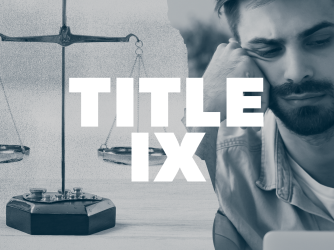Table of Contents
U. of Illinois Board of Trustees Votes Against Salaita Appointment

Yesterday afternoon, the University of Illinois Board of Trustees voted 8–1 against appointing Steven Salaita to a teaching position in the American Indian studies program at the University of Illinois at Urbana-Champaign (UIUC). Last month, just weeks before Salaita was set to begin teaching at UIUC, Chancellor Phyllis Wise informed him that she would not have the university’s Board of Trustees vote on his appointment—a step that many consider a mere formality in the hiring process. Since then, those watching the case have been split on whether Wise’s decision not to bring Salaita’s appointment to the the Board, which was based on a series of controversial tweets Salaita posted to his personal Twitter account, violated principles of academic freedom, or whether UIUC was within its rights to not hire Salaita.
The tweets causing the controversy over Salaita’s hiring contained commentary on the Israeli-Palestinian conflict, which some argued would make students uncomfortable or hesitant to speak up in his class. In a statement last month (that FIRE criticized), Wise wrote:
What we cannot and will not tolerate at the University of Illinois are personal and disrespectful words or actions that demean and abuse either viewpoints themselves or those who express them.
Free speech advocates further argued that even if many find Salaita’s tweets offensive, the remarks do not fall in any of the categories of speech unprotected by the First Amendment and therefore may not justify rescinding Salaita’s job offer.
The Chicago Tribune’s coverage of yesterday’s vote helps explain why there was disagreement as to whether UIUC was permitted to rescind its job offer to Salaita when it did:
Salaita's offer letter, signed by a university dean Oct. 3, 2013, and by Salaita on Oct. 9, says the job is subject to the board's approval. But it also says Salaita "will receive a formal notification of appointment" from the board after submitting all the necessary paperwork.
Board approval is typically a rubber stamp. The U. of I. board has not in recent memory voted against a hire. And Salaita's start date was Aug. 16, even though the board wasn't meeting to vote on academic appointments until September.
According to the Tribune, Salaita might not be done fighting yet:
Salaita’s attorney, Anand Swaminathan, has said his client will pursue legal action if the board rejects his appointment, including injunctive relief to allow him to begin working at the university. He said the board does not have the authority to reject the appointment because its role is merely perfunctory.
[...]
Swaminathan said Salaita has multiple grounds for a lawsuit, including that the university violated his constitutional rights of free speech and due process. Salaita also could have breach of contract claims, he said.
Inside Higher Ed reports that Salaita is “speaking with [his] attorneys about [his] options.”
Faculty members in the American Indian studies program criticized Wise for failing to consult them before making her decision and demonstrated their disapproval with a vote of no confidence in Wise. Other departments, too, have cast votes of no confidence. And last month, as mentioned above, FIRE criticized Wise’s defense of her decision here on The Torch, asking,
If I am an Illinois student or professor, am I actually to be prohibited from “disrespectfully” “abusing” ideas with which I disagree? What about racism, fascism, or communism? What if I am “disrespectful” of a colleague or fellow student’s belief that the world is flat, or that the Sun circles the Earth?
James D. Montgomery, the sole vote in favor of Salaita’s appointment, explained his vote by saying that he doesn’t think the case presents an issue of academic freedom, but rather of shared governance. Board President Robert Easter, on the other hand, opened by stating his support for open discourse, but said:
Professor Salaita's approach indicates that he would be incapable of fostering a classroom environment where conflicting opinions could be given equal consideration, regardless of the issue being discussed. … I am also concerned that his irresponsible public statements would make it more difficult for the university … to attract the best and brightest students, faculty and staff.
This explanation is troubling because it could just as easily be employed in the context of firing any professor who passionately speaks out about controversial issues in his personal time. After all, any professor could potentially discriminate against students with whom he disagrees, regardless of how strongly he words his opinions outside of the classroom. A professor’s articulation of his opinions via social media cannot not be taken as a sure indication that he will fail to perform his job duties properly. The Tribune reports:
"They have no reason to doubt the high standard I have always maintained in the classroom," Salaita said. “As I said in a less-notorious tweet, ‘I refuse to conceptualize #Israel/#Palestine as Jewish-Arab acrimony. I am in solidarity with many Jews and in disagreement with many Arabs.’ If they had cared to learn, they would have seen this and other tweets reflecting a similar sentiment."
[...]
Salaita said the language he uses on his personal Twitter account is different from his approach in the classroom, where he said he encourages debate and has never “browbeaten or criticized” a student who disagrees with him.
Easter wasn’t the only board member whose vote clashed with his asserted commitment to free expression. Inside Higher Ed reports:
Christopher Kennedy, chairman of the board, expressed similar sentiments in public statements following the vote, which he called “a real balance between the competing interests of the university.”
“We want a place where anyone can say anything, where there’s this great exchange of ideas, where freedom of speech is at its most liberal,” Kennedy said. On the other hand, he said, “there are comments that I think can be easily interpreted as basically anti-Semitic in [Salaita’s] tweets.”
As Torch readers know, to say that speech “can be easily interpreted as basically anti-Semitic” is simply to state one’s opinion of the speech—it is not by itself an argument about whether someone can be a professor. And Salaita’s posts revealed so far do not seem to fall under actual exceptions to the First Amendment. For example, they don’t appear to include true threats or incitement to imminent lawless action. Neither Easter nor Kennedy made an argument to the contrary.
Ultimately, the Board seems to have bought into Wise’s notion that UIUC should not tolerate “personal and disrespectful words or actions that demean and abuse either viewpoints themselves or those who express them.” Freedom of speech and academic freedom on campus are in danger when speakers are punished merely for protected speech deemed “demeaning” or “abusive,” and UIUC’s actions so far have given anyone on campus with an unpopular or controversial viewpoint reason to fear being punished.
Recent Articles
FIRE’s award-winning Newsdesk covers the free speech news you need to stay informed.


FIRE statement on campus violence and arrests

BREAKING: New Title IX regulations undermine campus free speech and due process rights
